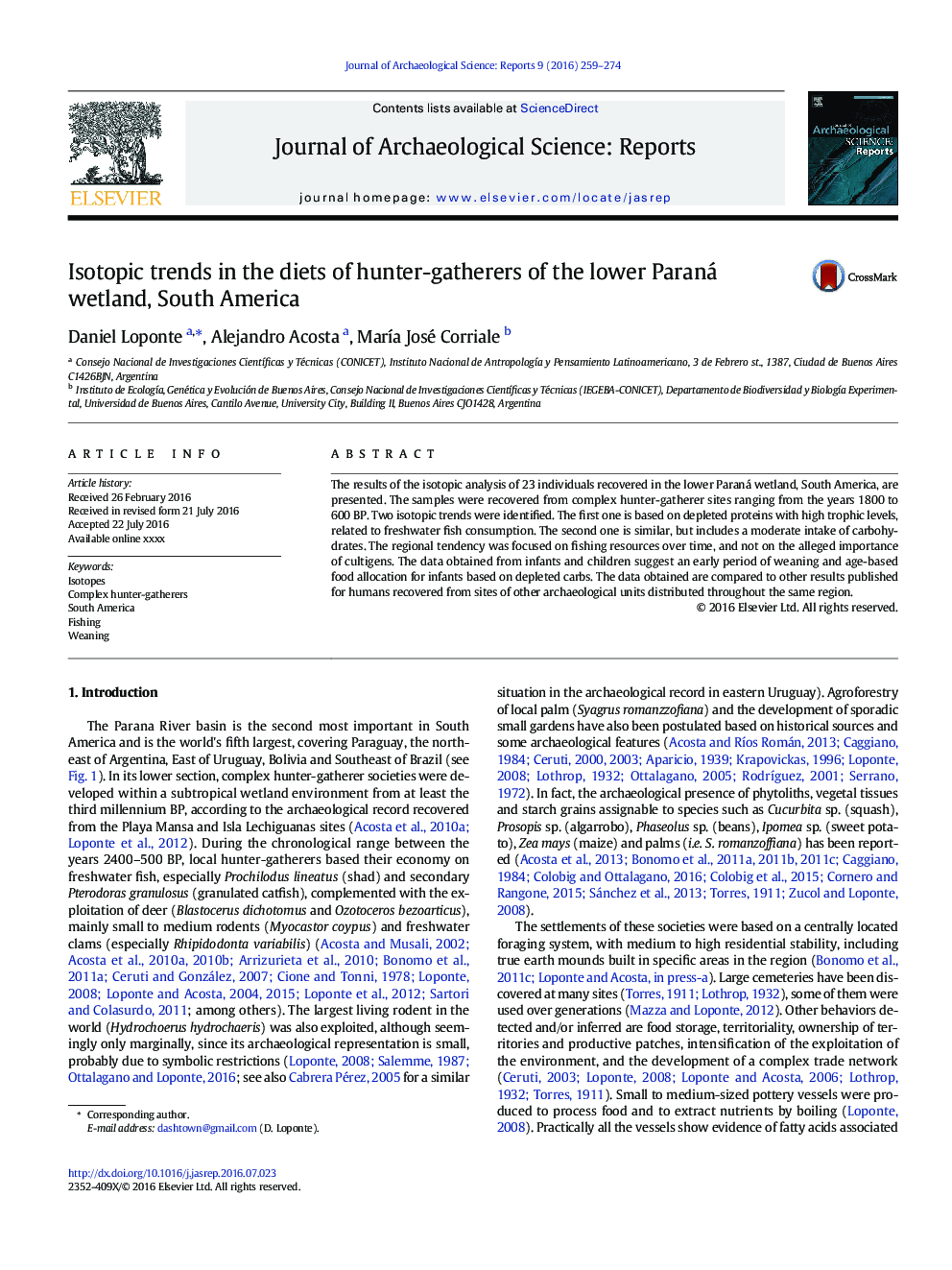| Article ID | Journal | Published Year | Pages | File Type |
|---|---|---|---|---|
| 7445411 | Journal of Archaeological Science: Reports | 2016 | 16 Pages |
Abstract
The results of the isotopic analysis of 23 individuals recovered in the lower Paraná wetland, South America, are presented. The samples were recovered from complex hunter-gatherer sites ranging from the years 1800 to 600Â BP. Two isotopic trends were identified. The first one is based on depleted proteins with high trophic levels, related to freshwater fish consumption. The second one is similar, but includes a moderate intake of carbohydrates. The regional tendency was focused on fishing resources over time, and not on the alleged importance of cultigens. The data obtained from infants and children suggest an early period of weaning and age-based food allocation for infants based on depleted carbs. The data obtained are compared to other results published for humans recovered from sites of other archaeological units distributed throughout the same region.
Keywords
Related Topics
Social Sciences and Humanities
Arts and Humanities
History
Authors
Daniel Loponte, Alejandro Acosta, MarÃa José Corriale,
